Living proof: female students are leading the charge on gender equity in Ethiopia
Story
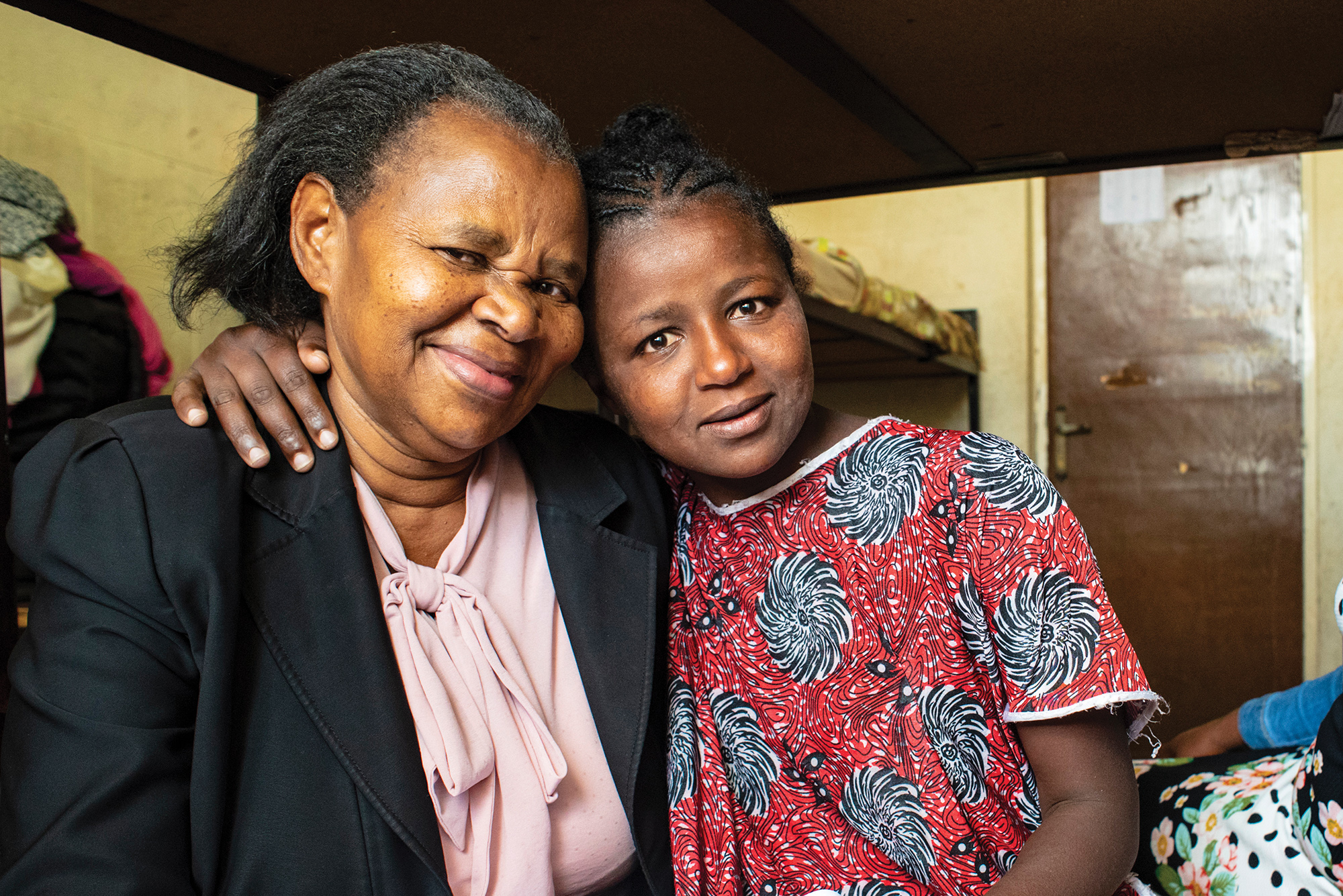
Anene Merga had nothing but the clothes she was wearing when she arrived at Madda Walabu University (MWU) last fall.
The 19-year-old knew the importance of having a post-secondary education. A degree in sports science would give her the skills required to land a job and support her younger siblings’ schooling. She picked up odd jobs between classes, trying to earn enough money to pay for her dormitory bed and afford basic essentials. But it wasn’t enough.
“I couldn’t survive around here,” she said.
Anene prepared to drop out.
Like Anene, about 1,200 of the 13,000 students at Madda Walabu University, located in Robe, Ethiopia, are classified as vulnerable due to disability and economic status. The majority are young women.
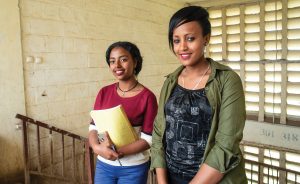
Fourth-year law students Fasika Tamrat, left, and Saron Buche are changing the social narrative at their university.
“Because many of the female students who enrol in MWU come from poor rural backgrounds, they are vulnerable to being abused sexually in exchange for money and better grades,” said gender expert and Cuso International volunteer Dr. Grace Puja. “These challenges require the participation of all members of society, men and women, to address all forms of inequities based on gender, poverty and ability.”
The 70-year-old Torontonian is working with the university’s Gender Directorate Office, sharing her knowledge and experience in the field of gender mainstreaming. Having previously studied and worked on gender issues at the universities of Dar es Salaam in Tanzania and Makerere in Uganda, she has seen how gender-based discrimination, violence and sexual harassment are pervasive problems.
At Madda Walabu University, underserved students can request financial aid from the Gender Office. But due to the large number of those requiring support, participants are chosen through a random lottery. About 300 female and male students received assistance, amounting to less than $10 CAD a month, during the previous school year. Students who aren’t selected must find other ways to support their education or drop out.
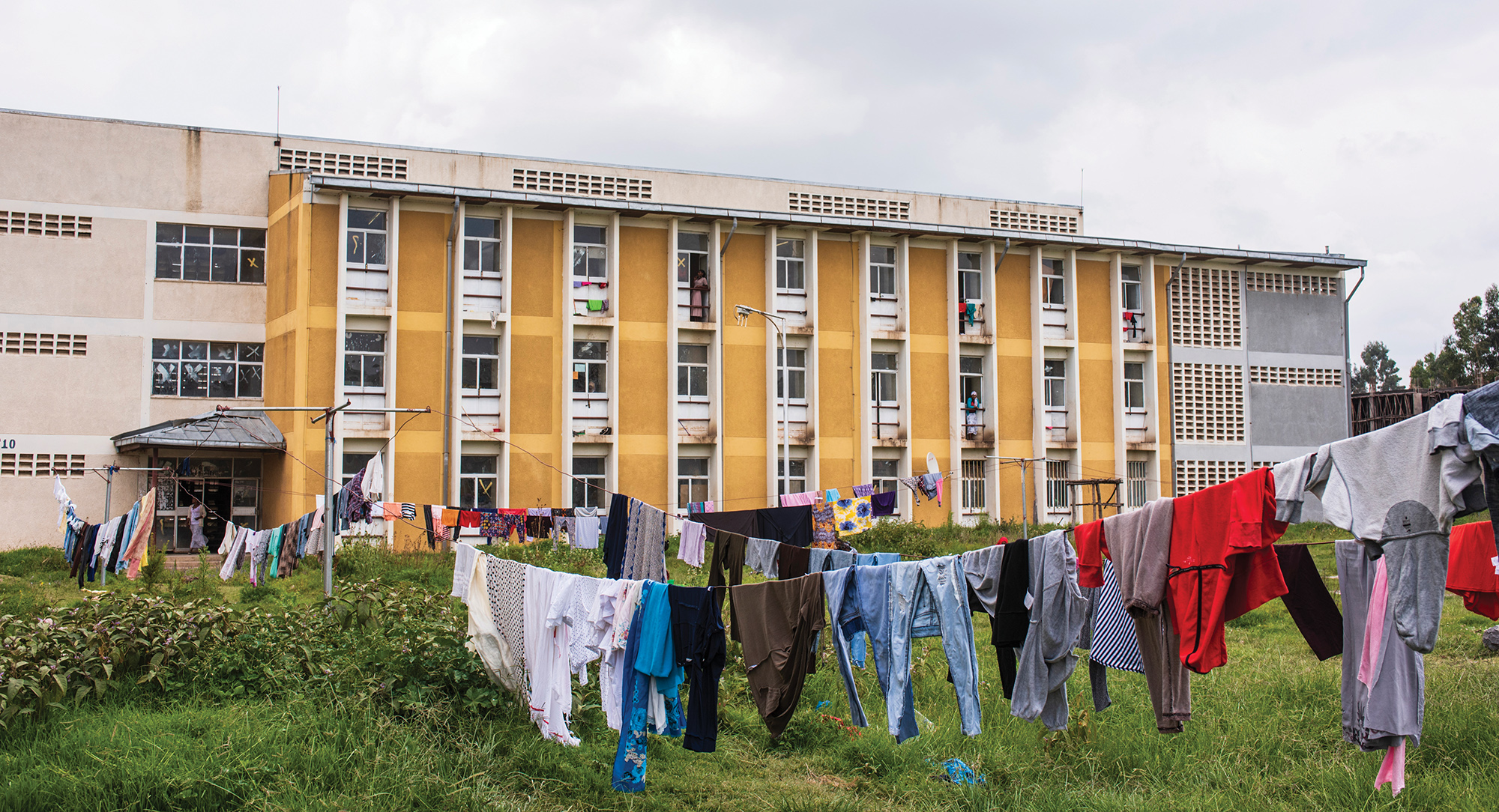
Clothes dry on a line outside the female dormitory at Madda Walabu University
“The fact that they don’t have cash to support themselves or to buy school accessories, may lead some to engage in prostitution so they can sustain themselves,” said Gishu Adere, Director of the Gender Office. “We try to stop that but there is a gap and they need the money. That’s the challenge they face.”
Fasika Tamrat and Saron Buche, fourth-year law students and co-presidents of the university’s Women’s Association, said female students who want a post-secondary education often feel as if they have no choice. Many can’t afford to purchase a notebook and pen—let alone necessities like sanitary pads and soap—and don’t have the same education levels as their male peers.
“The women, especially from our community, they’re not allowed to focus on their education as much as the men. When they come to the university, they don’t come with equal levels of knowledge,” said Fasika. “And almost all the female students come with financial problems. They need support at every level.”
The Women’s Association helps female students with campus integration and connects them to student services, hosts workshops on gender issues and lobbies for gender mainstreaming on campus. Members are working on a fundraising model to support more students.
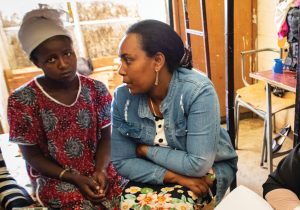
Anene Merga, left, and Gender Office Director Gishu Adere.
Fasika remembers when she met Anene for the first time in the women’s dormitory. “She just came with her clothes. She didn’t have a mattress. No comforts, no sheets to sleep with. She was just sleeping without anything at all.”
Anene was eight-years-old when her parents placed her in foster care. They couldn’t afford the cost of sending their five children to school, but the government would pay for the education of children in foster care up to age 18. Her siblings remained at home.
Although Anene’s schooling was at no charge, it didn’t come free. “Life at the foster house was extremely difficult, I was the one doing all the house work and caring for the small children. My foster family gave me food and clothing and they used to send me to school, but I never got any cash. I would have saved it for now,” she said.
“That’s one of the reasons I work during my spare time at the construction sites and washing clothes for students, I don’t use that money for myself. I send it home so my parents will keep sending my younger siblings to school. I want them to continue their education and I feel responsible.”
Unable to support her family and her education, Anene made the difficult decision to halt her schooling. That is, until Fasika and the Women’s Association stepped in. They were able to bypass the Gender Directorate’s financial assistance lottery and Anene now receives 200 birr—or $9.42 CAD—a month for her education and necessities.
“The Gender Directorate Office changed my life,” said Anene. “They were kind to me and they were so welcoming. They supported me with so many things. If it wasn’t for them, I would have gone home.”
Anene’s story is one among countless others, and the challenges don’t stop upon graduation. Women continue to face discrimination throughout their careers, said Gishu. Out of 45 director positions at Madda Walabu University, only three are held by women.
“Women want the positions, but they don’t get the opportunities men do,” she said. “Since I was a student, I have seen how women are underprivileged and discriminated against. I want to change that. It’s personal to me.”
Some of that change is already visible.
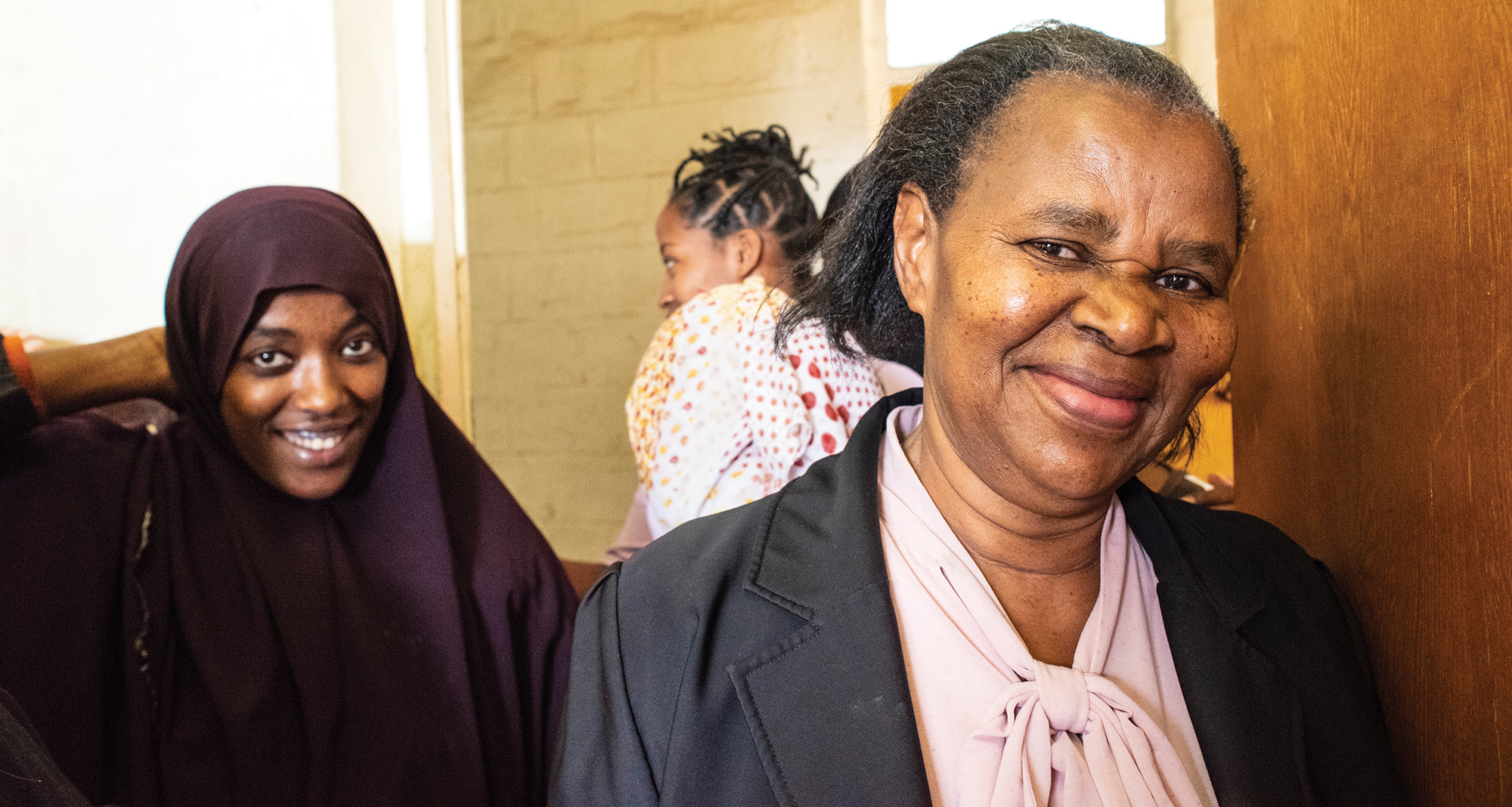
Gender expert Dr. Grace Puja, right, is helping an Ethiopian university bring gender mainstreaming to its campus.
Every week the Women’s Association and its members meet to discuss gender issues, health and protection, and other problems students are facing. Teachers are being rewarded for giving free tutoring sessions to their female students. Staff are being trained on how to reduce gender-based violence and what to do if it occurs. The university is also implementing an anti-sexual harassment law to hold teachers accountable for their actions.
And it’s in large part due to women like Gishu, Fasika, Grace and Anene who refuse to accept the status quo and continue to work to improve the lives of women and girls.
“As law students, we understand the law. As students, we understand the magnitude of the problem here,” said Fasika, who wants to be a lawyer or judge when she graduates. “We believe that with our law education and back-ground, and with our passion for the students, we can solve these problems.”
And when Anene graduates and returns home in three years’ time, she will focus her efforts on supporting her siblings and educating the youth in her community on women’s rights and gender issues.
“I will take that responsibility. I will teach them from my life and from my experience. I will tell them hardship should never stop you,” she said.
“I am living proof.”